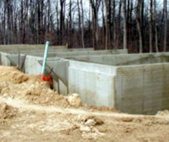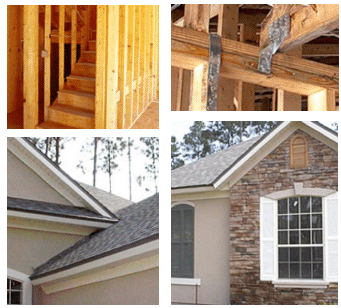Suffolk: 631-205-1340 | Nassau: 516-822-0827 | Outside Long Island: 1-888-886-1958
|
|
||
 |
||
|
|
||
|
|
|
|
|
New Construction Inspection
I'm buying a NEW home – I don't need a home inspection While residential homes and other buildings must be constructed according to local, state and federal code requirements, a buyer should understand that these codes are only the minimum acceptable standards required by law for the health and safety of future occupants. Meeting the minimum standards does not necessarily ensure quality, because workmanship is not a factor in code inspections. Although an assumption of quality can be generally based on the builder's reputation, quality is largely dependent on the professionalism of the construction crews that work on the home or building on any given day. It is often too late to discover latent problems once the framing has been covered with insulation and drywall. This is why you need an independent home inspection. What can we do for you? PHASE 1 – Foundation Inspection
PHASE 2 – Framing Inspection (Pre-Drywall) The framing inspection, also referred to as the pre-drywall home inspection, is performed prior to the builder installing insulation and drywall. We examine the plumbing, electrical wiring, heating and cooling ducts, the roof structure and roof surface. We observe the structural frame, inspecting each member for a variety of framing errors such as:
PHASE 3 – Final Inspection Before the buyer accepts the home from the builder, we perform a thorough evaluation of the home. During this home inspection we review, where possible, the action taken by the builder to correct deficiencies noted in the prior phase. In addition to cosmetic deficiencies and surface blemishes we inspect the electrical, mechanical, plumbing and structural systems, appliances, and other areas as outlined. The final inspection report serves as a "deficiency list" of items to be completed or corrected by the builder prior to final settlement. Recommendations for energy conservation and general home maintenance information are included at this time as well. PHASE 4 – One Year Warranty Inspection The final phase of new construction inspection may be performed anytime during the first 8-12 months of property ownership. This inspection determines and prioritizes any problems requiring attention as covered by the builder's 12-month warranty. The scope of this inspection typically covers all items listed in Phase 3 above. However, if a full inspection is not desired, the Phase 4 inspection may be requested as a problem evaluation to address specific areas of concern such as a wet basement or leaking roof. |
||
|
|
|
|
|
|
||

 We offer four discrete inspections during new construction – foundation, framing, final and warranty. You may request any single phase or combination of phases which best suits your individual needs. These phased home inspections provide documentation on the condition of the home while it is being built from the ground up. The home inspection ensures quality workmanship by enabling the builder to take corrective steps without significantly impacting the construction schedule. Our documentation is especially useful in establishing a timeline for construction defects that were not corrected by the builder prior to settlement. The detailed home inspection reports prepared during new construction also serve as an excellent sales tool when the property is being later resold.
We offer four discrete inspections during new construction – foundation, framing, final and warranty. You may request any single phase or combination of phases which best suits your individual needs. These phased home inspections provide documentation on the condition of the home while it is being built from the ground up. The home inspection ensures quality workmanship by enabling the builder to take corrective steps without significantly impacting the construction schedule. Our documentation is especially useful in establishing a timeline for construction defects that were not corrected by the builder prior to settlement. The detailed home inspection reports prepared during new construction also serve as an excellent sales tool when the property is being later resold. This home inspection phase is usually performed just prior to backfilling of soil against the foundation walls, after the forms have been removed from the concrete. The home inspector /engineer will observe the sewer and drain lines prior to laying the floor slab. Areas covered include:
This home inspection phase is usually performed just prior to backfilling of soil against the foundation walls, after the forms have been removed from the concrete. The home inspector /engineer will observe the sewer and drain lines prior to laying the floor slab. Areas covered include: